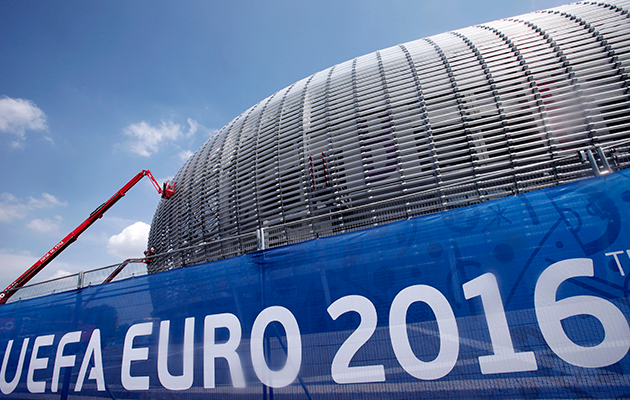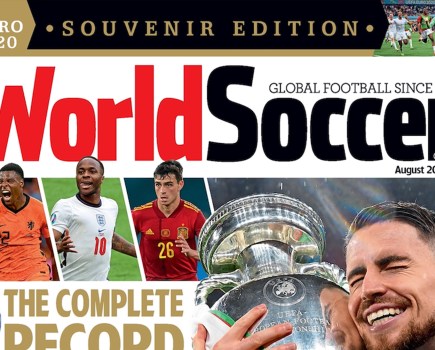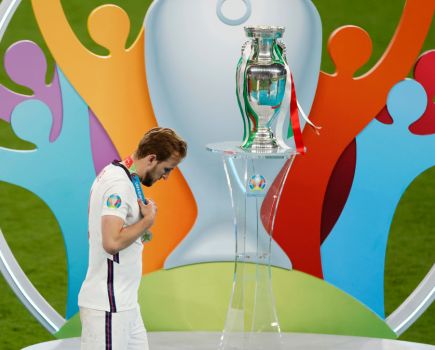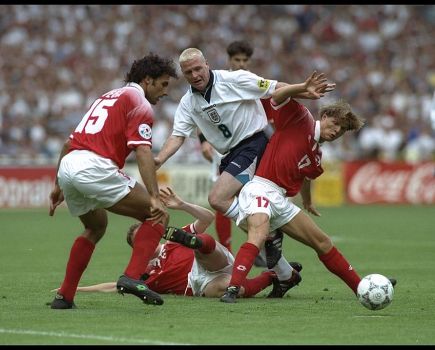The front page of that great icon of sports journalism, namely daily “L’Equipe”, spells it out loud and clear. Time to “remake history”. As Euro 2016 kicks off, three players dominate the front page, namely Michel Platini, Zinedine Zidane and Paul Pogba.
The message is clear. Time for France to stand up and be counted and win yet another big tournament on home ground. What the inspirational brilliance of Platini and Zidane could do at the 1984 Euros and the 1998 World Cup respectively, young Pogba is to do at Euro 2016.
L’Equipe is not the only media commentator to point out that France’s preparations for the European Championships have been far from straightforward. It was bad enough that an obvious terrorist threat has hung over the tournament for more than 18 months now, ever since the January 2015 attack on the Parisian satirical magazine, “Charlie Hebdo”. That threat then obviously escalated following last November’s “Bataclan” and Stade de France attacks in which 130 people lost their lives.
All that was bad enough but, in an albeit less serious way, the French team has encountered a series of problems, all of its own. Apart from injuries to players such as Zouma (Chelsea), Varane (Real Madrid) and Laporte (Atletico Madrid), the squad had been rattled by off the field polemics. Firstly, there was the Valbuena-Benzema sex tape affair last autumn whilst two weeks ago, the former France and Manchester United great, Eric Cantona, suggested that coach Didier Deschamps might have had racist reasons for not selecting Karim Benzema et Hatem Ben Arfa, two talented players of North African origin.
Every time we come to a tournament like this, we repeat to one another that the overall success of the show depends, to a certain extent at least, on a good showing by the home country. L’Equipe suggests that such has been the “good vibe” generated by Didier Deschamps‘s team in its most recent outings that this side could “prove itself a powerful antidote to the current turmoil in our country, riven by strikes and security fears…”
Perhaps and there again perhaps not. Many of us were here in France 18 years ago when Zidane inspired that memorable World Cup triumph. People pointed to the multi-ethnic, multi-cultural make up of that French side as an expression of a new assimilated and uniformly “French” France.

France’s 1998 World cup success featuring the likes of (left to right) Zidane, Desailly and Blanc was demed a potent symbol of unity for France.
The key roles in that team not only of Zidane (Algerian origins) but also of black players such as Lilian Thuram (French West Indies), Marcel Desailly (Ghana) and Christian Karembeu (New Caledonia) encouraged such an optimistic interpretation of their success. Had they not developed into the best team in the world, precisely because they had coalesced and blended with such clearly “white” French footballers as the very captain of that team, a certain Didier Deschamps?
The history of the last decade, however, would suggest that, for all the terrific quality of that great French team, it did not in fact signal any major step in the process of cultural harmonisation and racial integration in France. Riots in the banlieues in 2005 and the current socio-economic problems experienced by those who live there would argue otherwise.
Doubtless, it was a case of much too wishful thinking to imagine that the victory of the France ’98 team might have far reaching effects outside of football. Doubtless, too, that same consideration applies today.
So, then, let us just settle for some good football from Pogba and from a French side which will obviously be carrying the weight of much national expectation on its shoulders. The time has come not so much to “remake history” as to write your own narrative. France indeed could be one of those teams – Germany, Belgium, England, Italy, Portugal, Spain, Croatia could be others – whose narrative ends in tournament triuumph. Yet, it will in all probability be just that, a tournament success that provides a big moment of “feelgood” but which, in the end, has little impact outside football.








